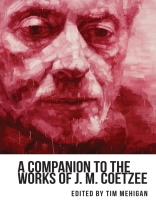Fresh essays by leading scholars on the most perplexing of modern writers, Franz Kafka.
No other writer of German-language literature in the 20th century has been as fully accepted into the canon of world literature as Franz Kafka. The unsettlingly, enigmatically surreal world depicted in Kafka’s novels and stories continues to fascinate readers and critics of each new generation, who in turn continue to find new readings. One thing has become wholly clear: although all theories attempt to appropriate Kafka, there is no one key to his work. The challenge to critics has been to present a strong point of view while taking account of previous Kafka research, a challenge that has been met by the contributors to this volume. The essays follow an introduction by the editor, and include: Clayton Koelb on the controversial question of Kafka editions; Walter H. Sokel on a life of reading–and writing about–Kafka; Judith Ryan on the early stories; Russell A. Berman on tradition and betrayal in `The Judgment’; Ritchie Robertson on anti-Christian elements in `The Judgment, ‘ `The Metamorphosis, ‘ and the aphorisms; Henry Sussman on Kafka’s evolving aesthetics; Stanley Corngold on
The Trial; Bianca Theisen on Kafka’s use of circus motifs in the stories `Up in the Gallery’ and `First Sorrow’; Rolf J. Goebel on the connection of Kafka’s
The Missing Person, `In the Penal Colony, ‘ and `The Great Wall of China’ to postcolonial critique; Richard T. Gray on the semiotics and aesthetics of `In the Penal Colony’; Ruth V. Gross on the `enigmatics’ of the short fiction; Sander L. Gilman on Kafka’s Jewishness and the story `The Country Doctor’; John Zilcosky on the colonial visionsin
The Castle; Mark Harman on the variants to
The Castle and what they tell us about Kafka’s writing process; and Clayton Koelb on Kafka’s rhetoric in the late stories `Josephine the Singer’ and `The Burrow.’
James Rolleston is Emeritus Professor of German at Duke University and has written widely on topics in modern German literature.
Daftar Isi
Introduction: Kafka Begins – James Rolleston
Critical Editions I: The 1994 Paperback Edition – James Rolleston
Critical Editions II: Will the Real Franz Kafka Please Stand Up? –
Beyond Self-Assertion: A Life of Reading Kafka – Walter H. Sokel
Kafka Before Kafka: The Early Stories – Judith Ryan
Tradition and Betrayal in ‘Das Urteil’ – Russell A. Berman
Kafka as Anti-Christian: ‘Das Urteil, ‘ ‘Die Verwandlung’ and the Aphorisms – Ritchie Robertson
Kafka’s Aesthetics: A Primer: From the Fragments to the Novels – Henry Sussman
Medial Allusions at the Ouset of
Der Proceß; or,
res in media – Stanley Corngold
Kafka’s Circus Turns: ‘Auf der Galerie’ and ‘Erstes Leid’ – Bianca Theisen
Kafka and Postcolonial Critique:
Der Verschollene, ‘In der Strafkolonie, ‘ ‘Beim Bau der Chinesischen Mauer’ – Rolf J. Goebel
Disjunctive Signs: Semiotics, Aesthetics and Failed Mediation in ‘In der Strafkolonie’ – Richard T. Gray
Hunting Kafka Out of Season: Enigmatics in the Short Fictions – Ruth V. Gross
A Dream of Jewishness Denied: Kafka’s Tumor and ‘Ein Landarzt’ – Sander L. Gilman
Surveying the Castle: Kafka’s Colonial Visions – John Zilcosky
Making Everything ‘A Little Uncanny’: Kafka’s Variants to
Das Schloß and What They Can Tell Us About His Writing Process His Writing Process – Mark Harman
Kafka Imagines His Readers: The Rhetoric of ‘Josefine die Sängerin’ and ‘Der Bau’ –
Tentang Penulis
Professor of German and Comparative Literature at the University of Texas at Arlington












